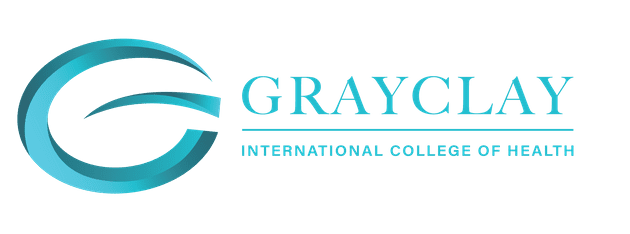Diploma of Mental Health
This qualification equips students with skills to support individuals with mental health issues. The course covers mental health assessment, crisis intervention, recovery-oriented practice, and ethical and legal considerations, preparing graduates for roles in mental health support, counselling, and community services.

Job Growth
The mental health sector is projected to grow by 20% over the next five years due to increasing awareness and demand for mental health services.
Sector Impact
Working in the mental health sector significantly contributes to societal well-being, with professionals playing key roles in reducing stigma, supporting recovery, and enhancing quality of life for individuals with mental health conditions.
Worker Demand
Over 50% of employers in the healthcare sector report difficulties in filling mental health positions, highlighting strong demand for qualified professionals.
Diploma of Mental Health
CHC53315
Transform lives with skills in Mental Health care
The CHC53315 Diploma of Mental Health is designed to equip students with the knowledge and practical skills needed to excel in the mental health sector. This comprehensive program focuses on providing high-quality care and support to individuals experiencing mental health challenges. Graduates will be prepared for a rewarding career in a field that is both in high demand and critical to community wellbeing.
Skills you will learn
- Advanced communication and counselling techniques;
- Mental health assessment and intervention strategies;
- Case Management and client advocacy;
- Development and implementation of mental health programs;
- Crisis intervention and prevention methods.
Overview
.gif?width=300&height=90&name=AQF_NRT%20(1).gif)
A fullfilling career awaits
There are approximately 30,000 job openings annually in mental health roles, driven by workforce expansion and turnover. See below for some of the jobs that this course provides a pathway to. Take a look at the video below where we will talk you through where this course can take you.
Course Information
What You'll Learn
In the Diploma of Mental Health (CHC53315), you will gain comprehensive knowledge and practical skills to support individuals with mental health issues.
The course covers mental health assessment, where you'll learn to identify and evaluate mental health conditions. You'll study crisis intervention techniques to provide immediate support during emergencies. The curriculum emphasises recovery-oriented practices, focusing on helping individuals achieve their personal recovery goals. Additionally, you'll delve into ethical and legal considerations, ensuring that your practice complies with professional standards.
The course combines theoretical learning with hands-on experience, preparing you for various roles in mental health support, counseling, and community services.
Units of Study
In the Diploma of Mental Health (CHC53315), you will gain knowledge and skills from the following core and elective units:
Core Units:
- CHCADV005 - Provide systems advocacy services: Learn to advocate for systemic changes to support mental health clients.
- CHCDIV001 - Work with diverse people: Develop skills to work effectively with diverse populations.
- CHCDIV002 - Promote Aboriginal and/or Torres Strait Islander cultural safety: Ensure culturally safe practices for Indigenous communities.
- CHCMHS002 - Establish self-directed recovery relationships: Support clients in directing their own recovery journeys.
- CHCMHS003 - Provide recovery oriented mental health services: Deliver services that focus on client recovery and empowerment.
- CHCMHS004 - Work collaboratively with the care network and other services: Coordinate with various services to provide comprehensive care.
- CHCMHS005 - Provide services to people with co-existing mental health and alcohol and other drugs issues: Address dual diagnosis issues with integrated care approaches.
- CHCMHS009 - Provide early intervention, health prevention and promotion programs: Develop and implement programs to prevent mental health issues.
- CHCMHS010 - Implement recovery oriented approaches to complexity: Manage complex cases with recovery-oriented approaches.
- CHCMHS011 - Assess and promote social, emotional and physical wellbeing: Evaluate and enhance overall wellbeing of clients.
- CHCMHS012 - Provide support to develop wellness plans and advanced directives: Assist clients in creating wellness plans and directives.
- CHCMHS013 - Implement trauma informed care: Deliver care that acknowledges and responds to trauma.
- CHCPOL003 - Research and apply evidence to practice: Use research to inform and improve practice.
- CHCPRP003 - Reflect on and improve own professional practice: Focus on continuous professional development.
- HLTWHS004 - Manage work health and safety: Ensure safe working environments.
Elective Units:
- CHCADV002 - Provide advocacy and representation services: Represent and support clients’ rights and interests.
- CHCPRP001 - Develop and maintain networks and collaborative partnerships: Build and maintain professional networks and partnerships.
- CHCDIS017 - Facilitate community participation and social inclusion: Promote community involvement and inclusion for people with disabilities.
- HLTHPS010 - Interpret and use information about nutrition and diet: Understand the role of nutrition in mental health.
- CHCMHS001 - Work with people with mental health issues: Support individuals with various mental health needs.
Career Pathways
Completing the Diploma of Mental Health (CHC53315) opens up various rewarding career pathways. These roles can be found in a variety of settings, including hospitals, community health centres, non-profit organisations, government agencies, and private practice, offering diverse opportunities to make a meaningful impact in the field of mental health.:
- Mental Health Support Worker: Provide day-to-day support for individuals with mental health issues, helping them to manage their conditions and improve their quality of life.
- Counselor: Offer counseling services to individuals and groups, assisting them with coping strategies and emotional support.
- Case Manager: Coordinate care for individuals with complex needs, ensuring they receive the appropriate services and support.
- Community Rehabilitation and Support Worker: Help individuals reintegrate into the community and achieve their personal goals through tailored support programs.
- Youth Worker: Support young people facing mental health challenges, providing guidance and facilitating access to resources and services.
- Alcohol and Other Drugs (AOD) Worker: Address co-existing mental health and substance abuse issues, offering specialized support and intervention.
- Peer Support Worker: Use lived experience to provide support and mentorship to others navigating their own mental health journeys.
- Program Coordinator: Develop and manage mental health programs, ensuring they meet the needs of the community and adhere to best practices.
- Mental Health Advocate: Represent and advocate for the rights and interests of individuals with mental health issues, working to improve services and policies.
- Trauma-Informed Care Specialist: Provide specialised care for individuals who have experienced trauma, integrating an understanding of trauma into all aspects of service delivery.
Entry Requirements
Age
Minimum Age 18 Years old
Education & Experience
One of the following:
- Year 12 or equivalent
- 2 years work or volunteering experience
- Completion of a Certificate III or higher qualification
English
An upper-intermediate level of English is required.
Student Evidence
Evidence of any of the below:
- Australian citizenship;
- Permanent Australian residency; or
- Temporary Australian residency with a valid visa, other than the student visa, to study and work in Australia.
Students will be required to provide a Unique Student Identifier (USI) which is a reference number that creates an online record of a student’s training and qualifications attained in Australia.
Language, Literacy, Numeracy
Language, Literacy and Numeracy (LLN) test is required prior to enrolment where;
- the highest AQF qualification achieved is Certificate IV;
- student is mature aged with no prior formal learning;
- student is new to workforce (recent high school graduate)
- student is an International student (new enrolment)
LLN Test is not required where student provides evidence of completion of an AQF Diploma or higher qualification.
Fees & Payment Options
Please visit our Fees and Payment Page here.
Assessment Methods
Grayclay’s Work Placement Program (WPP) forms a compulsory part of the student’s study and provides a vital and essential aspect of the learning experience. Students are required to complete 160 hours of work placement during their qualification duration of 2 years.
Students are assessed through observations in the workplace and documented interviews with the student and Workplace Supervisor throughout the Work Placement Program. A recommended Training Plan is given to both and the student is required to maintain a Logbook throughout the Placement, signed daily by the Workplace Supervisor (or their delegate).
Units assessed in the workplace include:
- CHCMHS002 Establish self-directed recovery relationships
- CHCMHS003 Provide recovery oriented mental health services
- CHCMHS004 Work collaboratively with the care network and other services
- CHCMHS010 Implement recovery-oriented approaches to complexity
- HLTWHS004 Manage work health and safety
Ready to Enrol? Apply Now!
You can apply online now simply by clicking below. Its a simple 3 step process that helps us understand your suitability for the course.
Flexible, Online, Supported and Recognised Courses
Our online courses are designed to provide the highest quality education with the flexibility to fit into your busy life. Here’s why our online courses are the best choice for your professional development:
Flexible Learning
Study at your own pace and on your own schedule, allowing you to balance your education with work, family, and other commitments.
Interactive and Engaging
Our courses feature interactive content, live sessions, and collaborative projects to ensure you stay engaged and connected with your peers and instructors.
Accredited Programs
Our nationally recognised courses meet rigorous standards, ensuring you receive a high-quality education that is respected by employers.
Comprehensive Support
Benefit from personalised support services, including academic advising, technical assistance, and career guidance, to help you every step of the way.
Practical Skills
Gain hands-on experience through practical assessments and real-world projects that prepare you for success in your chosen field.
Take a look at our other courses
.png) Community Services
Community Services
Diploma of Community Services (CHC52021)
Equips students with skills for roles in community and case management, focusing on social welfare, advocacy, and community development.
- Online
- May 12,2025
- 24 Months
.png) Business
Business
Diploma of Leadership and Management (BSB50420)
Covering leadership, performance management, and project management skills, this course prepares graduates to lead effectively and drive organisational success.
- Online
- May 12,2025
- 12 Months
.png) Business
Business
Diploma of Business (BSB50120)
Provides comprehensive training in essential business skills, including management, marketing, and project coordination, designed to enhance career opportunities in various business environments.
- Online
- May 12,2025
- 12 Months
